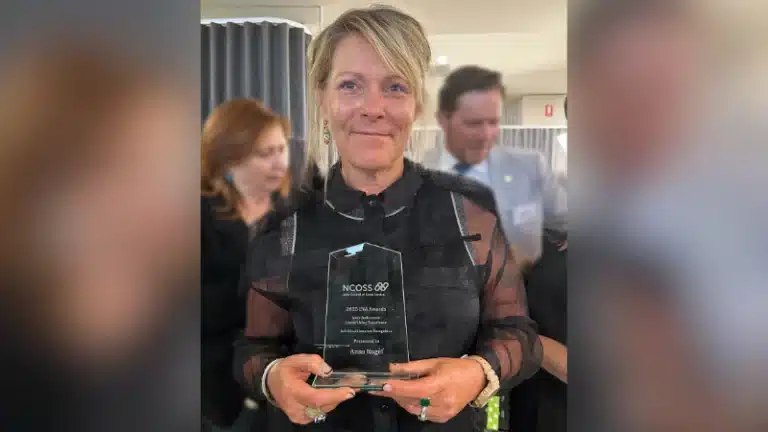A legal claim against Jetstar relating to the accessibility of airline travel for customers who use electric wheelchairs has recently resolved in the Federal Court.
Bodhi Boele relies on his customised electric wheelchair for independence and safety.
When flying with Jetstar in 2019, Bodhi communicated his need to remain in his electric wheelchair up until the departure gate and to receive his electric wheelchair at the arrival gate. Instead, Bodhi was required to transfer to a Jetstar wheelchair at the check-in area.
At the time, Bodhi was 12 years old and preparing to fly from Sydney to Launceston to compete at a Boccia competition.
Since that time, Bodhi and his mother, Heike Fabig, have been advocating for customers to remain in their electric wheelchairs up until the departure gate and to receive their electric wheelchairs at the arrival gate.
PIAC assisted Ms Fabig to make a claim on behalf of Bodhi alleging unlawful discrimination under the Disability Discrimination Act 1992 (Cth). Jetstar denied that it engaged in unlawful disability discrimination and the matter has now resolved. A public statement has been agreed between the parties.
Bodhi’s experience has raised awareness of the challenges faced by customers travelling with electric wheelchairs.
PIAC Senior Solicitor, Erin Turner Manners said: ‘The Australian Bureau of Statistics estimates there are 185,100 people in Australia who use either a manual or electric wheelchair. Public transport operators and providers are required to ensure public transport is accessible to everyone. Customised wheelchairs can be essential for independence, safety, and dignity.’
It is well-known that major barriers exist for people with disability accessing airline travel. Since 2016, the Australian Human Rights Commission has received approximately 118 disability discrimination complaints against airlines.
‘Like other public transport services, accessibility of air travel in Australia needs to improve for people with disability,’ Ms Fabig said. ‘There are significantly reduced flight options for people with disability in Australia, especially given restrictions on the number of wheelchairs per flight and on the size of the wheelchairs that can be carried on some planes.’
In Australia and overseas there have been growing calls for passengers to be able to remain in their own wheelchairs onboard flights as they are able to do on other modes of public transport. Recent innovative technologies present potential design solutions. For example, the Air4All system is one option that has been recently unveiled.
Ms Fabig is eager to see systems like this piloted in Australia and says ‘innovative technology is being developed overseas that allows customers to keep their own electric wheelchair onboard flights. Air4All or similar solutions like it would improve access to air travel for people who use wheelchairs.’
PIAC and Ms Fabig recommend that the disability community and groups such as the National Inclusive Transport Advocacy Network be consulted to find solutions that work for people with disability and airlines in Australia.
PIAC acknowledges the generous support of Litigation Lending in backing this case.
You can access the agreed public statement between Bodhi’s family and Jetstar here.
Media contact: PIAC Media and Communications Manager, Gemma Pearce: 0478 739 280.
